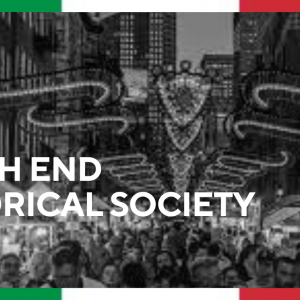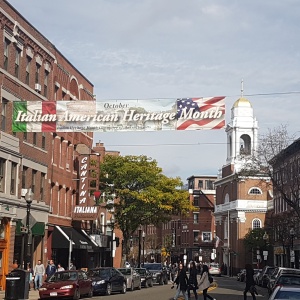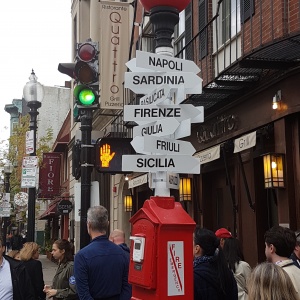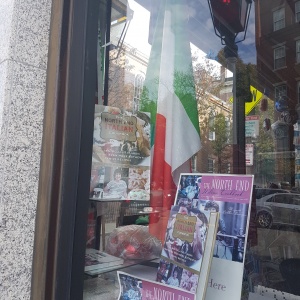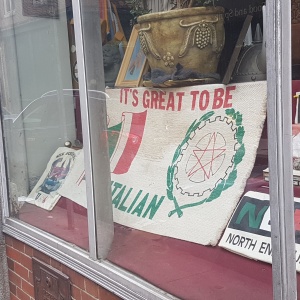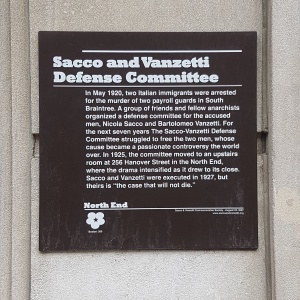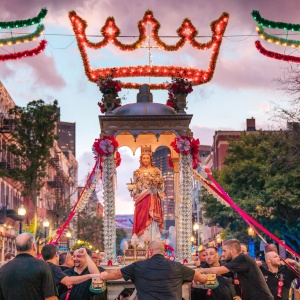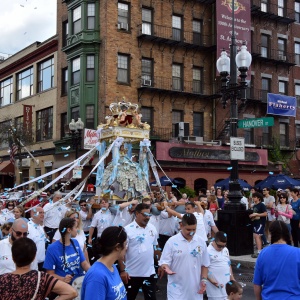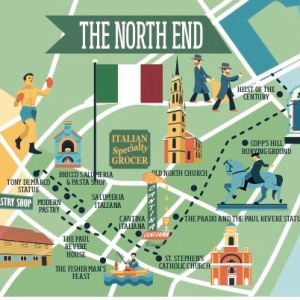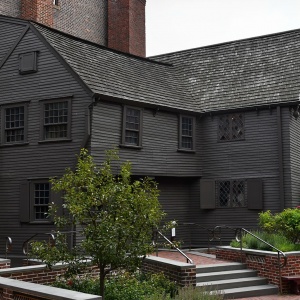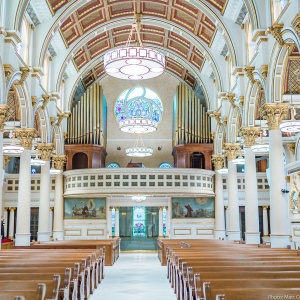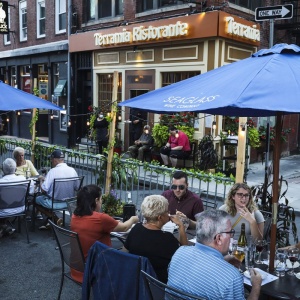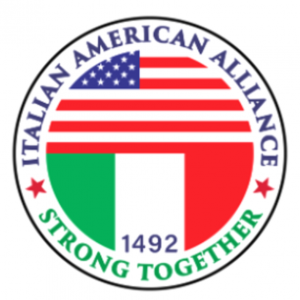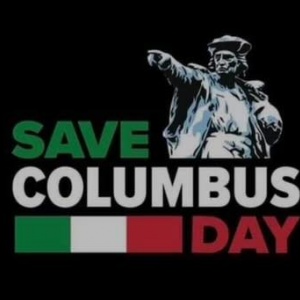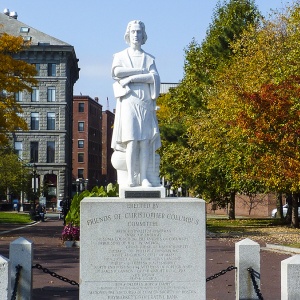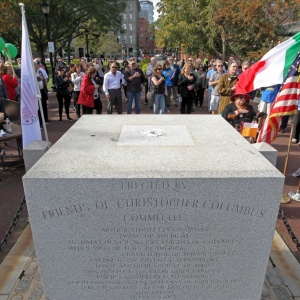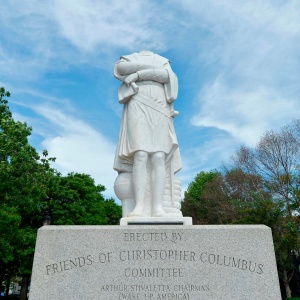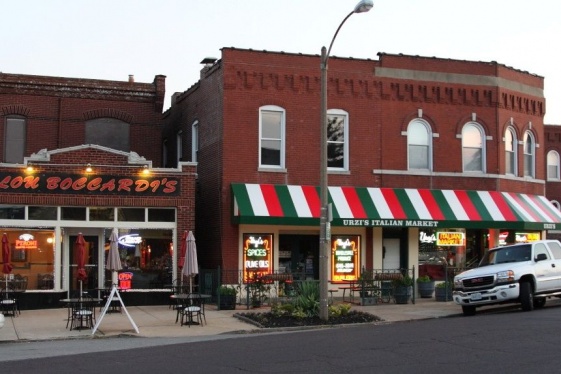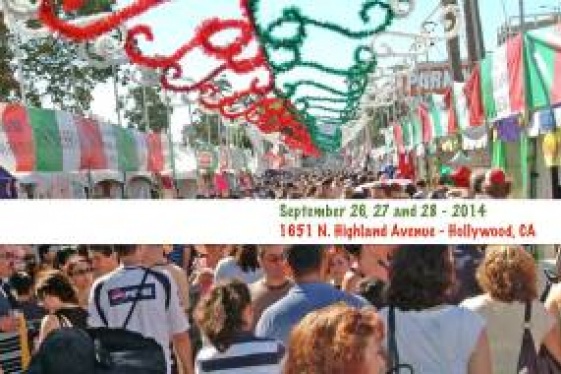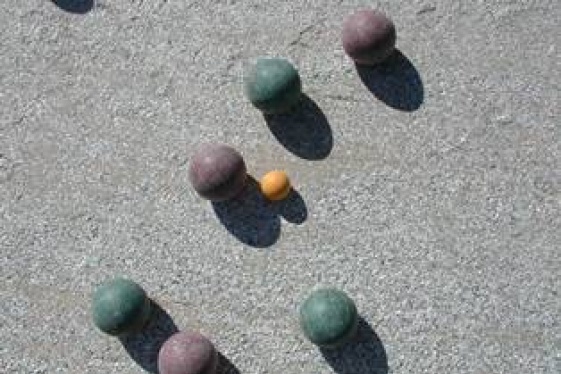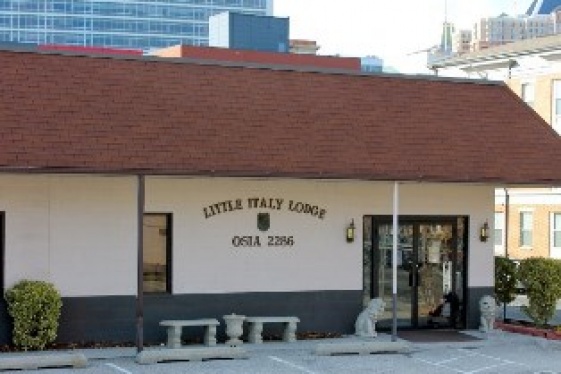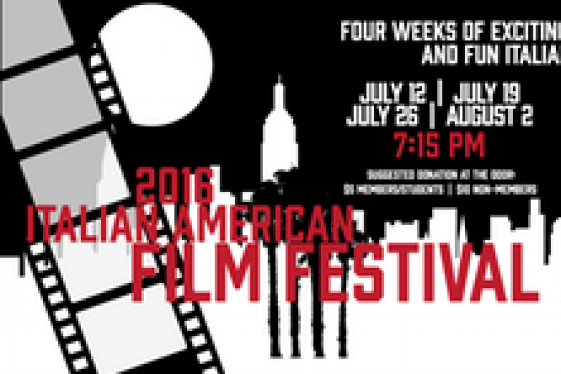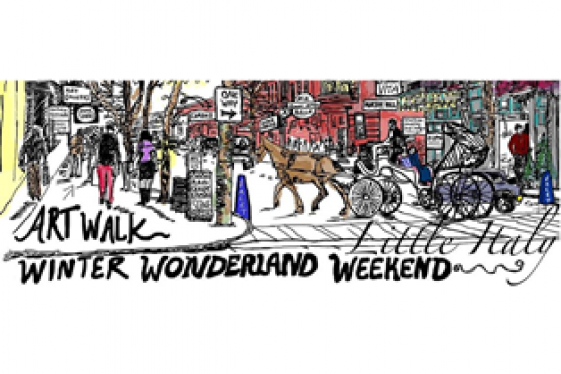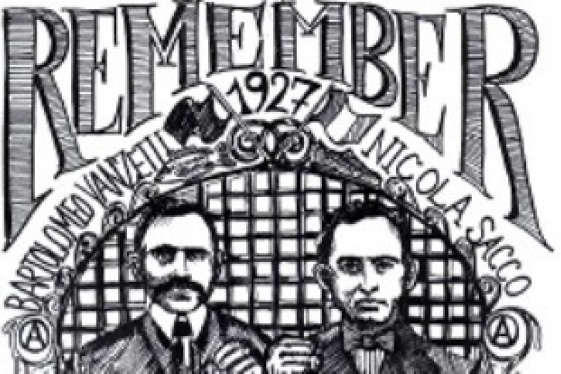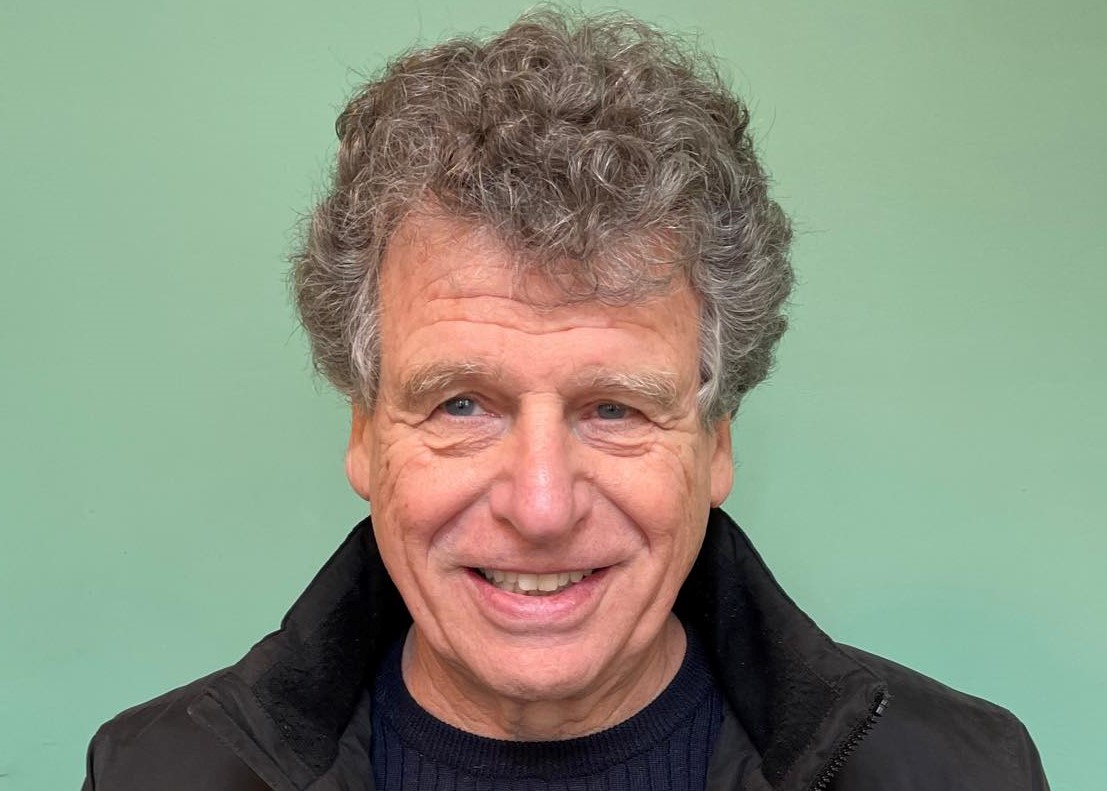
Tom Damigella (President of the North End Historical Society)
Incontriamo Tom Damigella nel North End, la Little Italy di Boston, Massachusetts

Boston and the State of Massachusetts have always been fundamental in American history but also in the narrative of Italian emigration and presence in the United States. Our guest today is one of the most important figures in the Italian American community in the Bay State, where he has also been our new Ambassador for a few weeks.
Tom Damigella well represents the pride of Italian Americans who love to remember their Italian roots with passion. He will tell us about Boston's magnificent Little Italy, the North End, and the Italian American Alliance, of which he is Vice President. Thank you Tommy, welcome to We the Italians!
Tom, when I met you I immediately understood how much you are proud of your Italian heritage… please tell me about you and your family’s Italian roots
In 1965 When I was a young man of 18 years old, I went to Sicily with my parents to my mother's place of birth. This was the first time she returned to Sicily since she left in 1925 at 7 years old. It was an emotional coming home experience that left indelible impression on me that made me even more aware of my Italian roots. Of course, growing up in a large extended family of relatives who were all Italian made it even more clear that I was Italian American who felt very grateful that our culture of family, food, and faith was part of my identity.
I also had watched my parents and others work very hard to create a successful life for their family which became our American dream that you can become whatever you wanted in America. This always gave me a sense of gratitude for what opportunities I had as well. I always loved talking with my Nana about her growing up in Mineo, Sicily. I found it fascinating. In addition, my mom kept all the old family photos from 1900, which helped to tell her story as well. None of that story telling was lost on me and I cherished it. I also fell in love with Rita who also came from another wonderful Italian family, which of course reinforced that sense of who we were.
You played as professional soccer player for the Boston Astros… how was soccer in the US back in those days?
Yes, in College I played Varsity soccer as a Goalie, which was quite unusual back in 1966 for an American kid to play soccer. I played all the other sports and just found that I had the talent and physical skills to lean the goalie position well enough that I became good enough to become a back up Goalie for the Boston Astros in year of 1972. It was mostly Brazilian players who were amazing. I also managed a semi pro team as well and had become even more embedded in my Italian culture because many of the other teams were Italian and they eventually became my friends and they embraced me because I was of Course Italian too.
The North End in Boston is one of the most important Little Italies of the United States. You are President of the North End Historical Society. What’s special in this Little Italy?
Also in the 1970s I moved into the North End Italian neighborhood of Boston where my mother first immigrated to in 1925. Once again, I was purposely reaching back to my roots. These were the reasons why I for the rest of my life always embraced our Italian heritage, which eventually brought me back to Sicily in 2002 and since then have become reconnected to all my cousins. It has added such a greater level of emotional feeling of truly being connected to my heritage, which is why today I am President of the North End Historical Society.
Even though I moved to the suburbs years ago, once you live as a North Ender, it stays with you and therefore, I always stayed connected to the North End and friends. What made the north End even more relevant to me and my family is when my dad at 86 years old decided to sell his house in the suburbs and we got him an apartment in the North End where he socially flourished by speaking his Italian and becoming a part of the neighborhood, which was better then any assisted living place he could be a resident. To this day they all recall him fondly.
Walking in the North End today and being among North Enders that you know just by walking down the street still gives it that feeling of a small village in Sicily. When I have friends who visit, they enjoy my Boston tours because it is all very personal and genuine.
What really made the North End one of the most resilient Little Italy's was the construction of the Expressway in 1953. It actually cut it off from the rest of the city and in a strange way it never got gentrified until the 1980's. Yet even today there are still original Italian Families living there as well as owners of businesses that keep the character of the old world alive. At one time in the 1920's there were 40,000 Italians in the North End and today there are only 8.600 people of which % 15 are still Italian. There are 90 Italian restaurants and coffee shops, butcher, bakery, and Catholic churches all maintaining Italian culture that people love. The streets are narrow, alive, and vital especially when five Italians Religious feasts take place in the Summer months.
Yes, I know there are several Italian festivals in Boston's Little Italy every year. Are you particularly fond of one in particular?
One of my favorite feasts is Saint Agrippina of Mineo, the patron saint of my grandparents. I always enjoy sharing it with family and friends. Another of my favorites is the Fisherman's Feast (Madonna del Soccorso) which have been celebrated for over 100 years in the Streets of the North End. They are four-day long events and they are a time for friends and families to return for a reunion. Marching bands, food, and the Saint procession through the streets is a sight to behold.
Over the years, I have visited my families in Sicily and experienced their Festa as well, and they are so surprised to see that these customs are still alive in America.
Italian roots run very deep in Massachusetts. There are many communities that have dominant pockets of Italian Americans. In fact, there are 800,000 Italian Americans out of 7 million people in Massachusetts. We have the 3rd largest percentage of Italian population in USA. This is why we grew up very conscious of being Italian due to our visibility and constant influence in all facets of our communities.
I often like to quote my Dad. He could speak fluent Italian and dialect before he spoke English when he was born in 1915 in Chelsea, MA. He of course grew up in the heart of the Italian enclaves and he often said he "Loved being Italian, but most of all he was a Proud American." That kind of sums up exactly how I feel as well.
What is your favorite Italian place in the North End, and why?
One of the reasons why the North End is such an Iconic Italian enclave is due to businesses like Polcari's Coffee. Bob Eustace has kept the store exactly like it was in 1932 when Mr. Polcari's opened it. He sells every kind of coffee beans and other imported products from Italy. It is like walking into a time machine that takes you also back to when everyone knew your name as you stepped into the many stores to shop.
One of my favorite North End activities is to just walk around the narrow streets and know that I am walking in the footsteps of my parents and grandparents when they first arrived in the early 1900's. Of course, I have many friends who own one of 90 restaurants in the North End that have become one of my favorite places to visit and hang out with friends and family. And the food? The best. The North End also has the only all Italian publication book store in the United States!
The North End is also part of what we call the Freedom Trail of Boston which takes people back to special landmarks of the pre-revolutionary times of America. The North End was actually the first settlement of Boston that goes back to 1630. What a combination of history that takes us through the immigration era of Iris, Jewish, and eventually Italians that flooded the streets in the 1800 and 1900's.
We have Paul Revere house right in the middle of the North Square, and the old North Church where the lanterns were hung to start the Famous Midnight ride of Paul Revere. The North End and Boston are the United States Cradle of Liberty!
The first Italian church, St. Leonard’s, was built in 1873 to meet the needs of the new immigrants. It is a beautiful church as is Sacred Heart where my great uncle was married in 1908.
Talking about the North End, I know that the restaurateurs of the Italian neighborhood are suing the city of Boston. This is another conflict, after what happened with Columbus: a fight you fought also as Vice President of the Italian American Alliance, right?
Ironically, this year those same restaurateurs are at odds with the city of Boston over a dispute over the possibility of having outdoor tables, an option that has been canceled only in the North End throughout Boston. The restaurateurs have filed a discrimination lawsuit. There seems to be a political sense of anti Italianism when you put add this dinning issue to the replacement of Columbus Day in Boston with the Indigenous Day and the removal of Columbus Statue in 2020.
The Columbus issue has been one of my roles with the Italian American Alliance to Save Columbus Day as a State Holiday. We stopped legislation last year from being passed and we helped many towns counter the action and stop town committees and boards from eliminating Columbus Day. All grassroots efforts won those fights.
The Italian American Alliance has Board members who support our culture with great programs and concerts and festivals. We also have become the most fervent activist group to save Columbus by educating those who have been indoctrinated with untruths an disinformation about Columbus to serve others political agenda regarding social justice policies and actions. They unfortunately have been using him as a scapegoat for historical events that he never participated.
Now I Am Vice President, but I became Chairman of the Strategic planning group after Frank Mazzaglia passed away. He was a heroic champion for the Admiral Columbus and I just picked up that torch. We now have over 7000 people on our member list that we keep informed and involved in our programs and political action efforts. Since I took that role, it lead me to becoming more involved with the National organization called the Conference of Presidents of the Major Italian American Organizations lead by President Judge Basil Russo who has been leading the Columbus issue on a national level.
It is still our intention to get Columbus Day back on the books by still pressing the unfairness and its importance to our Community and many other Americans. In fact, in October we actually had a sit down with the Mayor Wu who made a positive gesture to us by declaring Columbus Day Italian Heritage Day in Boston. We still see that as a 1/2 of loaf and will do our best to bring Columbus Day back by continuing to hold Columbus Day Celebrations like we did in East Boston last October.
We are blessed with many active Italian Organization which are collaborating more and more together so we can create a greater synergy of operation that at one time was somewhat lacking. We are creating a more unified One Voice that has been to quiet for to many decades. We to believe in diversity and inclusiveness and it seems that Italian Americans have been excluded as special ethnic group, which was unfortunate.
We have much hope for putting this unfortunate Columbus issue behind us so we can spend more time joyously celebrating our heritage and culture and share it also with others.
You may be interested
-
“The Hill” St. Louis’ Little Italy
When the fire hydrants begin to look like Italian flags with green, red and white stripes,...
-
13th Annual Galbani Italian Feast of San Gen...
In September of 2002, some of Los Angeles' most prominent Italian American citizens got to...
-
1st Annual Little Italy Cannoli Tournament
Little Italy San Jose will be hosting a single elimination Cannoli tournament to coincide...
-
2015 Bocce Bash!!
Please join Mia Maria Order Sons of Italy in America Lodge #2813 as we host the 2015...
-
2015 scholarship competition
The La Famiglia Scholarship committee is pleased to announce the financial aid competition...
-
2016 Italian American Film Festival
When: Tuesday, July 12, 2016 | Tuesday, July 19, 2016 - Tuesday, July 26, 2016 | Tues...
-
30th Annual Art Holiday Walk, Winter Winter...
Holiday walk hours Friday, 12/5 noon-9pm, Saturday ,12/6 noon-9pm Sunday, 12/7 noon-6pm. S...
-
9th Annual Sacco and Vanzetti March/Rally
Saturday, August 23rd, in Boston, the 87th anniversary of the execution of Nicola Sacco an...





